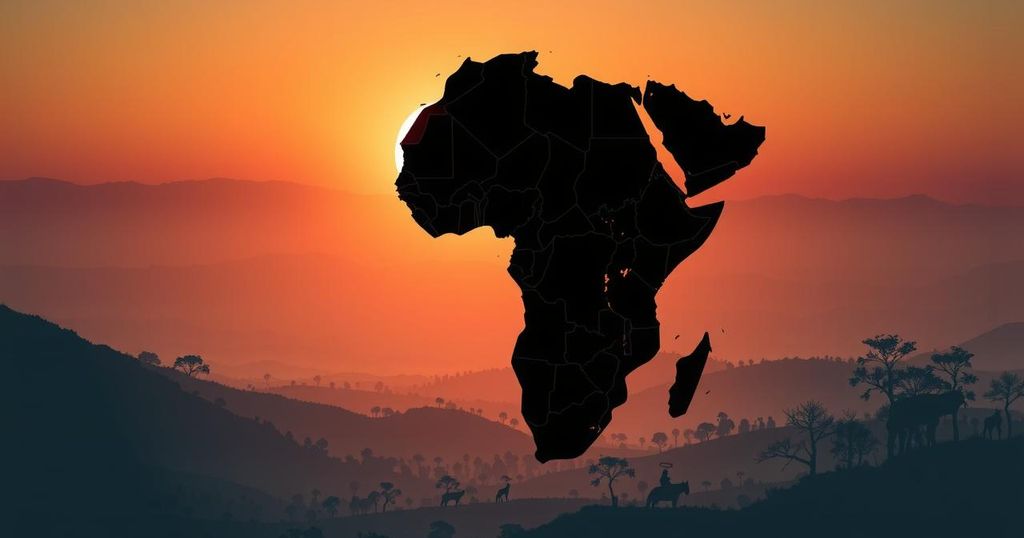The Ongoing Drought Crisis in Southern Africa: A Call to Action
Southern Africa is experiencing its worst drought in over a century, affecting 61 million people, with 20 million in critical need of aid. Countries, including Namibia, have declared emergencies and taken drastic measures to combat food insecurity. Climate change is a primary driver of this worsening environmental crisis, which requires immediate global action to address its impacts.
Southern Africa is currently grappling with a severe drought, unprecedented in severity over the last century. This crisis has left approximately 61 million individuals affected, with over 20 million facing acute food insecurity. Countries such as Botswana, Namibia, Lesotho, Malawi, Zambia, and Zimbabwe have declared states of emergency due to the dire conditions.
In Namibia, the drought has particularly escalated, impacting around 40% of the population who are now facing acute food insecurity. In response, the Namibian government has ordered a cull of roughly 700 wild animals, including elephants, hippos, and elands, as a drastic measure to alleviate hunger among its citizens. Alarmingly, by 2024, an estimated 84% of Namibia’s food reserves are anticipated to be depleted.
Historically, this current drought is not an isolated incident; Namibian states of emergency have recurred over the past decade due to similarly severe droughts, occurring from 2013 to 2014, 2015 to 2016, and 2018 to 2019.
The underlying cause of this escalating drought is attributed to climate change, which is also implicated in increasing wildfires in California and floods in Spain. Data reveals a significant uptick in natural disasters, with the number of climate-related disasters surging by 83% from 1980-1999 to 2000-2019, contributing to substantial loss of life and heightened economic damages.
The worsening environmental crises across the globe highlight the urgent need for collective action against climate change. Namibia, with its rich biodiversity and natural beauty, underscores the necessity for global efforts to combat climate change to preserve our planet for future generations.
The question arises as to why individuals should engage in climate action, especially for those not directly experiencing current crises. The reality is that climate change’s repercussions extend beyond geographic boundaries; it affects all of humanity.
Individual efforts may seem inadequate, but change is possible when sufficient numbers unite and act, emphasizing the urgency of collective action before the damages become irrevocable. Delaying such efforts, which have been needed for almost 170 years, will only exacerbate the situation.
The drought in Southern Africa, particularly in Namibia, represents a significant humanitarian crisis driven by climate change. The unprecedented severity of this drought has necessitated emergency measures and highlights the broader implications of climate-related disasters affecting millions worldwide. Urgent collective action is required to mitigate the impacts of climate change and safeguard the well-being of future generations.
Original Source: www.theteenmagazine.com




Post Comment